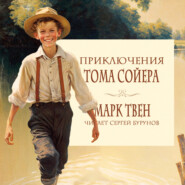По всем вопросам обращайтесь на: info@litportal.ru
(©) 2003-2024.
✖
Mark Twain's Speeches
Настройки чтения
Размер шрифта
Высота строк
Поля
The story of the world is adorned with the names of illustrious ones of our own sex – some of, them sons of St. Andrew, too – Scott, Bruce, Burns, the warrior Wallace, Ben Nevis – the gifted Ben Lomond, and the great new Scotchman, Ben Disraeli[1 - Mr. Benjamin Disraeli, at that time Prime Minister of England, had just been elected Lord Rector of Glasgow University, and had made a speech which gave rise to a world of discussion.]. Out of the great plains of history tower whole mountain ranges of sublime women: the Queen of Sheba, Josephine, Semiramis, Sairey Gamp; the list is endless – but I will not call the mighty roll, the names rise up in your own memories at the mere suggestion, luminous with the glory of deeds that cannot die, hallowed by the loving worship of the good and the true of all epochs and all climes. Suffice it for our pride and our honor that we in our day have added to it such names as those of Grace Darling and Florence Nightingale. Woman is all that she should be gentle, patient, longsuffering, trustful, unselfish, full of generous impulses. It is her blessed mission to comfort the sorrowing, plead for the erring, encourage the faint of purpose, succor the distressed, uplift the fallen, befriend the friendless – in a word, afford the healing of her sympathies and a home in her heart for all the bruised and persecuted children that knock at its hospitable door. And when I say, God bless her, there is none among us who has known the ennobling affection of a wife, or the steadfast devotion of a mother but in his heart will say, Amen!
Woman’s Press Club
On October 27, 1900, the New York Woman’s Press Club gave a tea in Carnegie Hall. Mr. Clemens was the guest of honor.
If I were asked an opinion I would call this an ungrammatical nation. There is no such thing as perfect grammar, and I don’t always speak good grammar myself. But I have been foregathering for the past few days with professors of American universities, and I’ve heard them all say things like this: “He don’t like to do it.” [There was a stir.] Oh, you’ll hear that to-night if you listen, or, “He would have liked to have done it.” You’ll catch some educated Americans saying that. When these men take pen in hand they write with as good grammar as any. But the moment they throw the pen aside they throw grammatical morals aside with it.
To illustrate the desirability and possibility of concentration, I must tell you a story of my little six-year-old daughter. The governess had been teaching her about the reindeer, and, as the custom was, she related it to the family. She reduced the history of that reindeer to two or three sentences when the governess could not have put it into a page. She said: “The reindeer is a very swift animal. A reindeer once drew a sled four hundred miles in two hours.” She appended the comment: “This was regarded as extraordinary.” And concluded: “When that reindeer was done drawing that sled four hundred miles in two hours it died.”
As a final instance of the force of limitations in the development of concentration, I must mention that beautiful creature, Helen Keller, whom I have known for these many years. I am filled with the wonder of her knowledge, acquired because shut out from all distraction. If I could have been deaf, dumb, and blind I also might have arrived at something.
Votes For Women
At the annual meeting of the Hebrew technical school for girls, held in the Temple Emmanuel, January 20, 1901
Mr. Clemens was introduced by President Meyer, who said: “In one of Mr. Clemens’s works he expressed his opinion of men, saying he had no choice between Hebrew and Gentile, black men or white; to him all men were alike. But I never could find that he expressed his opinion of women; perhaps that opinion was so exalted that he could not express it. We shall now be called to hear what he thinks of women.”
Ladies and gentlemen, – It is a small help that I can afford, but it is just such help that one can give as coming from the heart through the mouth. The report of Mr. Meyer was admirable, and I was as interested in it as you have been. Why, I’m twice as old as he, and I’ve had so much experience that I would say to him, when he makes his appeal for help: “Don’t make it for to-day or to-morrow, but collect the money on the spot.”
We are all creatures of sudden impulse. We must be worked up by steam, as it were. Get them to write their wills now, or it may be too late by-and-by. Fifteen or twenty years ago I had an experience I shall never forget. I got into a church which was crowded by a sweltering and panting multitude. The city missionary of our town – Hartford – made a telling appeal for help. He told of personal experiences among the poor in cellars and top lofts requiring instances of devotion and help. The poor are always good to the poor. When a person with his millions gives a hundred thousand dollars it makes a great noise in the world, but he does not miss it; it’s the widow’s mite that makes no noise but does the best work.
I remember on that occasion in the Hartford church the collection was being taken up. The appeal had so stirred me that I could hardly wait for the hat or plate to come my way. I had four hundred dollars in my pocket, and I was anxious to drop it in the plate and wanted to borrow more. But the plate was so long in coming my way that the fever-heat of beneficence was going down lower and lower – going down at the rate of a hundred dollars a minute. The plate was passed too late. When it finally came to me, my enthusiasm had gone down so much that I kept my four hundred dollars – and stole a dime from the plate. So, you see, time sometimes leads to crime.
Oh, many a time have I thought of that and regretted it, and I adjure you all to give while the fever is on you.
Referring to woman’s sphere in life, I’ll say that woman is always right. For twenty-five years I’ve been a woman’s rights man. I have always believed, long before my mother died, that, with her gray hairs and admirable intellect, perhaps she knew as much as I did. Perhaps she knew as much about voting as I.
I should like to see the time come when women shall help to make the laws. I should like to see that whip-lash, the ballot, in the hands of women. As for this city’s government, I don’t want to say much, except that it is a shame – a shame; but if I should live twenty-five years longer – and there is no reason why I shouldn’t – I think I’ll see women handle the ballot. If women had the ballot to-day, the state of things in this town would not exist.
If all the women in this town had a vote to-day they would elect a mayor at the next election, and they would rise in their might and change the awful state of things now existing here.
Woman-An Opinion
Address at an early banquet of the Washington correspondents’ club.
The twelfth toast was as follows: “Woman – The pride of any profession, and the jewel of ours.”
Mr. President, – I do not know why I should be singled out to receive the greatest distinction of the evening – for so the office of replying to the toast of woman has been regarded in every age. I do not know why I have received his distinction, unless it be that I am a trifle less homely than the other members of the club. But be this as it may, Mr. President, I am proud of the position, and you could not have chosen any one who would have accepted it more gladly, or labored with a heartier good-will to do the subject justice than I – because, sir, I love the sex. I love all the women, irrespective of age or color.
Human intellect cannot estimate what we owe to woman, sir. She sews on our buttons; she mends our clothes; she ropes us in at the church fairs; she confides in us; she tells us whatever she can find out about the little private affairs of the neighbors; she gives us good advice, and plenty of it; she soothes our aching brows; she bears our children – ours as a general thing. In all relations of life, sir, it is but a just and graceful tribute to woman to say of her that she is a brick.
Wheresoever you place woman, sir – in whatever position or estate – she is an ornament to the place she occupies, and a treasure to the world. [Here Mr. Clemens paused, looked inquiringly at his hearers, and remarked that the applause should come in at this point. It came in. He resumed his eulogy.] Look at Cleopatra! look at Desdemona! – look at Florence Nightingale! – look at Joan of Arc! – look at Lucretia Borgia! [Disapprobation expressed.] Well [said Mr. Clemens, scratching his head, doubtfully], suppose we let Lucretia slide. Look at Joyce Heth! – look at Mother Eve! You need not look at her unless you want to, but [said Mr. Clemens, reflectively, after a pause] Eve was ornamental, sir – particularly before the fashions changed. I repeat, sir, look at the illustrious names of history. Look at the Widow Machree! – look at Lucy Stone! – look at Elizabeth Cady Stanton! – look at George Francis Train! And, sir, I say it with bowed head and deepest veneration – look at the mother of Washington! She raised a boy that could not tell a lie – could not tell a lie! But he never had any chance. It might have been different if he had belonged to the Washington Newspaper Correspondents’ Club.
I repeat, sir, that in whatever position you place a woman she is an ornament to society and a treasure to the world. As a sweetheart, she has few equals and no superiors; as a cousin, she is convenient; as a wealthy grandmother with an incurable distemper, she is precious; as a wetnurse, she has no equal among men.
What, sir, would the people of the earth be without woman? They would be scarce, sir, almighty scarce. Then let us cherish her; let us protect her; let us give her our support, our encouragement, our sympathy, ourselves – if we get a chance.
But, jesting aside, Mr. President, woman is lovable, gracious, kind of heart, beautiful – worthy of all respect, of all esteem, of all deference. Not any here will refuse to drink her health right cordially in this bumper of wine, for each and every one has personally known, and loved, and honored the very best one of them all – his own mother.
Advice To Girls
In 1907 a young girl whom Mr. Clemens met on the steamer Minnehaha called him “grandpa,” and he called her his granddaughter. She was attending St. Timothy’s School, at Catonsville, Maryland, and Mr. Clemens promised her to see her graduate. He accordingly made the journey from New York on June 10, 1909, and delivered a short address.
I don’t know what to tell you girls to do. Mr. Martin has told you everything you ought to do, and now I must give you some don’ts.
There are three things which come to my mind which I consider excellent advice:
First, girls, don’t smoke – that is, don’t smoke to excess. I am seventy-three and a half years old, and have been smoking seventy-three of them. But I never smoke to excess – that is, I smoke in moderation, only one cigar at a time.
Second, don’t drink – that is, don’t drink to excess.
Third, don’t marry – I mean, to excess.
Honesty is the best policy. That is an old proverb; but you don’t want ever to forget it in your journey through life.
Taxes And Morals
Address delivered in New York, January 22, 1906
At the twenty-fifth anniversary of the founding of Tuskeegee Institute by Booker Washington, Mr. Choate presided, and in introducing Mr. Clemens made fun of him because he made play his work, and that when he worked hardest he did so lying in bed.
I came here in the responsible capacity of policeman to watch Mr. Choate. This is an occasion of grave and serious importance, and it seems necessary for me to be present, so that if he tried to work off any statement that required correction, reduction, refutation, or exposure, there would be a tried friend of the public to protect the house. He has not made one statement whose veracity fails to tally exactly with my own standard. I have never seen a person improve so. This makes me thankful and proud of a country that can produce such men – two such men. And all in the same country. We can’t be with you always; we are passing away, and then – well, everything will have to stop, I reckon. It is a sad thought. But in spirit I shall still be with you. Choate, too – if he can.
Every born American among the eighty millions, let his creed or destitution of creed be what it may, is indisputably a Christian – to this degree that his moral constitution is Christian.
There are two kinds of Christian morals, one private and the other public. These two are so distinct, so unrelated, that they are no more akin to each other than are archangels and politicians. During three hundred and sixty-three days in the year the American citizen is true to his Christian private morals, and keeps undefiled the nation’s character at its best and highest; then in the other two days of the year he leaves his Christian private morals at home and carries his Christian public morals to the tax office and the polls, and does the best he can to damage and undo his whole year’s faithful and righteous work. Without a blush he will vote for an unclean boss if that boss is his party’s Moses, without compunction he will vote against the best man in the whole land if he is on the other ticket. Every year in a number of cities and States he helps put corrupt men in office, whereas if he would but throw away his Christian public morals, and carry his Christian private morals to the polls, he could promptly purify the public service and make the possession of office a high and honorable distinction.
Once a year he lays aside his Christian private morals and hires a ferry-boat and piles up his bonds in a warehouse in New Jersey for three days, and gets out his Christian public morals and goes to the tax office and holds up his hands and swears he wishes he may never – never if he’s got a cent in the world, so help him. The next day the list appears in the papers – a column and a quarter of names, in fine print, and every man in the list a billionaire and member of a couple of churches. I know all those people. I have friendly, social, and criminal relations with the whole lot of them. They never miss a sermon when they are so’s to be around, and they never miss swearing-off day, whether they are so’s to be around or not.
I used to be an honest man. I am crumbling. No – I have crumbled. When they assessed me at $75,000 a fortnight ago I went out and tried to borrow the money, and couldn’t; then when I found they were letting a whole crop of millionaires live in New York at a third of the price they were charging me I was hurt, I was indignant, and said: “This is the last feather. I am not going to run this town all by myself.” In that moment – in that memorable moment – I began to crumble. In fifteen minutes the disintegration was complete. In fifteen minutes I had become just a mere moral sand-pile; and I lifted up my hand along with those seasoned and experienced deacons and swore off every rag of personal property I’ve got in the world, clear down to cork leg, glass eye, and what is left of my wig.
Those tax officers were moved; they were profoundly moved. They had long been accustomed to seeing hardened old grafters act like that, and they could endure the spectacle; but they were expecting better things of me, a chartered, professional moralist, and they were saddened.
I fell visibly in their respect and esteem, and I should have fallen in my own, except that I had already struck bottom, and there wasn’t any place to fall to.
At Tuskeegee they will jump to misleading conclusions from insufficient evidence, along with Doctor Parkhurst, and they will deceive the student with the superstition that no gentleman ever swears.
Look at those good millionaires; aren’t they gentlemen? Well, they swear. Only once in a year, maybe, but there’s enough bulk to it to make up for the lost time. And do they lose anything by it? No, they don’t; they save enough in three minutes to support the family seven years. When they swear, do we shudder? No – unless they say “damn!” Then we do. It shrivels us all up. Yet we ought not to feel so about it, because we all swear – everybody. Including the ladies. Including Doctor Parkhurst, that strong and brave and excellent citizen, but superficially educated.
For it is not the word that is the sin, it is the spirit back of the word. When an irritated lady says “oh!” the spirit back of it is “damn!” and that is the way it is going to be recorded against her. It always makes me so sorry when I hear a lady swear like that. But if she says “damn,” and says it in an amiable, nice way, it isn’t going to be recorded at all.
The idea that no gentleman ever swears is all wrong; he can swear and still be a gentleman if he does it in a nice and, benevolent and affectionate way. The historian, John Fiske, whom I knew well and loved, was a spotless and most noble and upright Christian gentleman, and yet he swore once. Not exactly that, maybe; still, he – but I will tell you about it.
One day, when he was deeply immersed in his work, his wife came in, much moved and profoundly distressed, and said: “I am sorry to disturb you, John, but I must, for this is a serious matter, and needs to be attended to at once.”
Then, lamenting, she brought a grave accusation against their little son. She said: “He has been saying his Aunt Mary is a fool and his Aunt Martha is a damned fool.” Mr. Fiske reflected upon the matter a minute, then said: “Oh, well, it’s about the distinction I should make between them myself.”
Mr. Washington, I beg you to convey these teachings to your great and prosperous and most beneficent educational institution, and add them to the prodigal mental and moral riches wherewith you equip your fortunate proteges for the struggle of life.

















